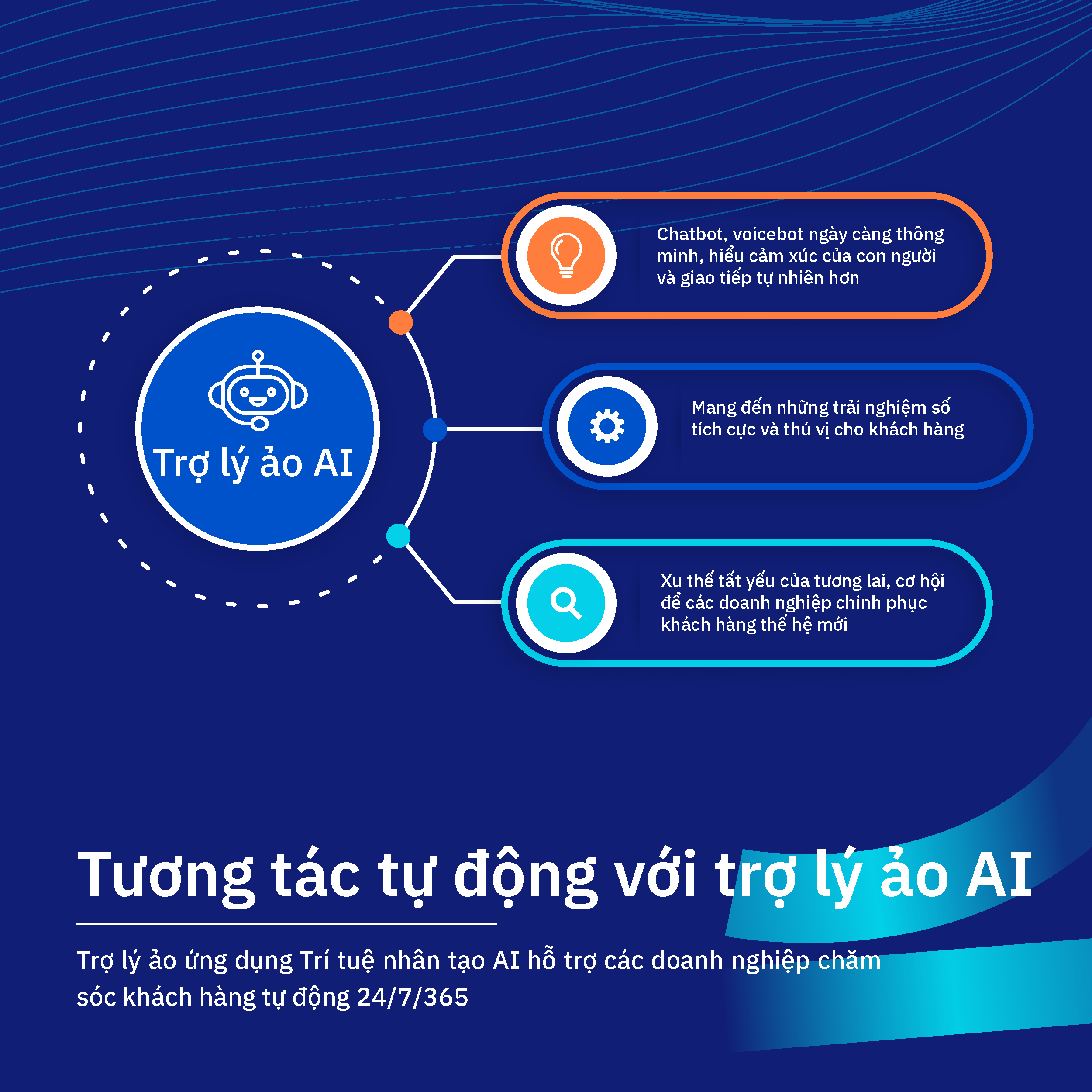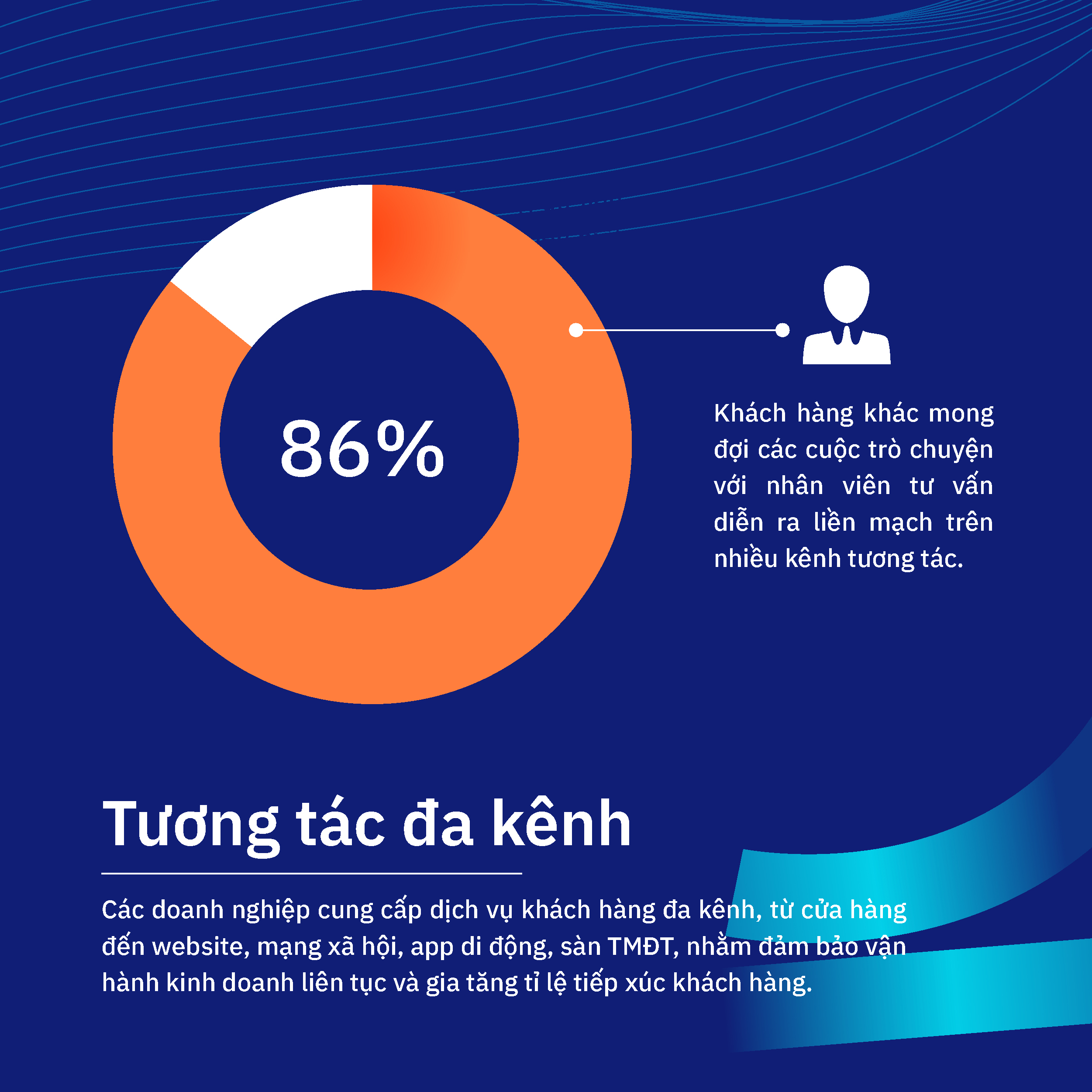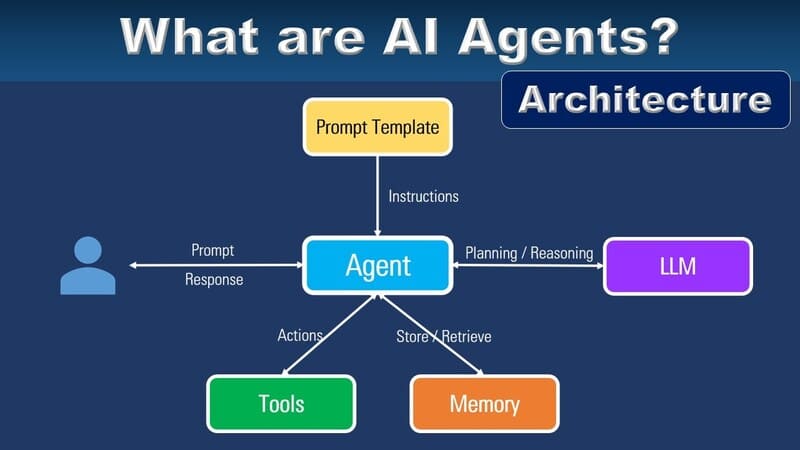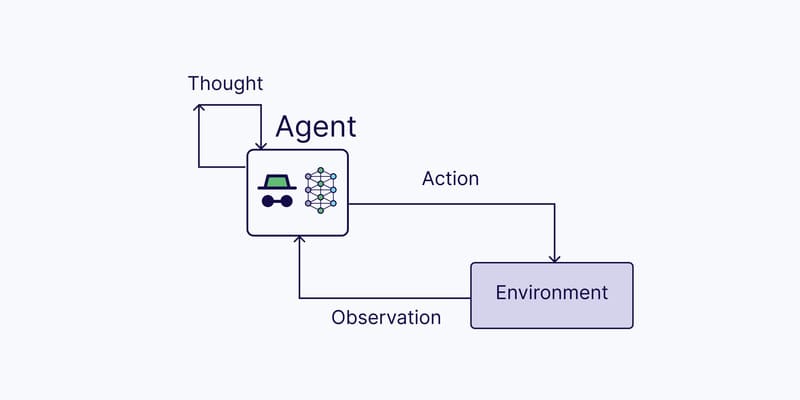Customer experience is the top priority of every business’s effort to create competitive differences and attract new-generation customers. Being the leader in researching AI adoption for customer service activities, AI-based virtual assistant is the solution to provide powerful digital experiences, satisfying customers and helping businesses achieve efficiency breakthroughs.
Develop self-service

Businesses are increasingly focusing on features that allow customers to experience self-services through automated programs without human intervention.
Benefits for customers:
- Fast and convenient transactions
-
No waiting time
-
Make transactions, get support 24/7/365
-
Provide positive experiences with services
Benefits for businesses:
-
Cut down personnel, reduce cost
-
Increase productivity – Increase profit
-
Improve the quality of customer experience
-
Be available every time, everywhere
-
Enhance the ability to approach customers
Automatic interaction with virtual assistants

The emergence of AI-integrated virtual assistants allows humans to communicate with virtual assistants naturally, supporting humans in many necessary tasks. Virtual agents are becoming better and better at understanding natural languages, human emotions, and bringing interesting experiences to young customers. Adopting Virtual agents into customer service is an inevitable trend in the future, creating huge opportunities for businesses to win customers.
Personalize experiences to create uniqueness

Personalization has been an essential factor that helps businesses maintain and build strong relationships with customers.
According to Gartner, 88% of large companies use customer data to gain more useful insights. Thus, they can seize the opportunities to reach customers, spot sales opportunities, give customers personalized promotions, or handle any problems right when customers encounter them. Personalization helps marketing to come up with the right messages that fit each segment, each individual, and customers’ insight, in order to maintain customer relationships, especially in a competitive industry like the service sector.
Multi-channel interactions
Ensuring multi-channel activities, meeting the needs for product searching of customers – from offline stores to websites, social media, mobile apps, e-commerce platforms, etc., is an essential factor that ensures continuous operational scalability, even when facing a problem or a risk such as social distancing. Multi-channel models help enhance customer experiences in their interaction journey and increase the rate of brands touching customers.

However, synchronization between channels is a big challenge for businesses. 86% of customers expect an uninterrupted conversation with agents throughout different channels. 76% of customers said that the most annoying thing in their experience journey is being forced to repeat their problems when using different channels. The managing system of multi-channel interaction automatically recognizes repeat customers and connects them with available agents. With all customer information, history, and buying habits, supporters can immediately greet customers by their names and give answers focusing on their problems.
With AI-powered virtual assistants, such as chatbots integrated into messaging platforms and voicebots integrated into customer service call centers, all information of customer supporting history will be stored and managed synchronically, helping human supporters to grasp customers’ problems, thereby giving effective solutions and increasing customer satisfaction.
————————
![]() Experience products of FPT.AI at https://fpt.ai/vi
Experience products of FPT.AI at https://fpt.ai/vi
![]() Hotline: 0911886353
Hotline: 0911886353
![]() Email: support@fpt.ai
Email: support@fpt.ai

















